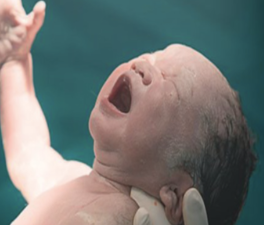Fetal disorders
- Description
- Curriculum
- Reviews

This comprehensive course provides an in-depth exploration of fetal disorders, offering a detailed understanding of their etiology, diagnosis, management, and implications. Designed for medical professionals, students, and researchers, the course delves into both common and rare fetal conditions, equipping participants with the knowledge needed to improve prenatal care and outcomes.
Key Topics Include:
- Introduction to Fetal Development: Understanding normal fetal development to contextualize disorders.
- Genetic and Environmental Factors: Exploration of genetic mutations, chromosomal abnormalities, and environmental influences affecting fetal health.
- Diagnostic Techniques: In-depth training on prenatal diagnostic tools such as ultrasound, amniocentesis, chorionic villus sampling (CVS), and advanced imaging techniques.
- Common Fetal Disorders: Detailed examination of conditions such as Down syndrome, spina bifida, congenital heart defects, and others.
- Rare and Complex Disorders: Study of less common disorders, including their unique challenges and management strategies.
- Ethical Considerations: Discussion on the ethical implications of prenatal testing, decision-making, and patient counseling.
- Management and Intervention: Strategies for managing diagnosed fetal disorders, including potential interventions and the role of multidisciplinary care.
- Case Studies and Practical Applications: Real-world case studies to apply theoretical knowledge and enhance clinical decision-making skills.
Learning Outcomes:
Upon completion, participants will be able to:
- Identify and understand the causes and consequences of various fetal disorders.
- Utilize advanced diagnostic tools and techniques for accurate detection and diagnosis.
- Develop and implement management plans for affected pregnancies.
- Navigate ethical issues and provide compassionate counseling to expectant families.
- Apply knowledge through case studies to improve practical skills and clinical decision-making.
Target Audience:
This course is intended for healthcare professionals, including obstetricians, pediatricians, genetic counselors, and other practitioners involved in prenatal and perinatal care. It is also suitable for students and researchers interested in advancing their knowledge in this critical field.
Prerequisites:
Basic understanding of human genetics, fetal development, and prenatal care is recommended.
Course Format:
The course combines lectures, interactive case studies, hands-on workshops, and assessments to provide a well-rounded educational experience.




